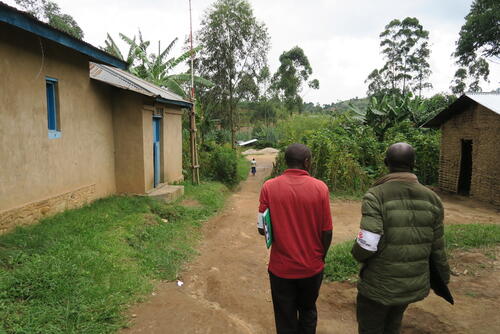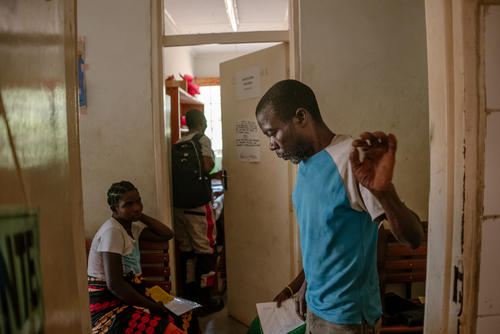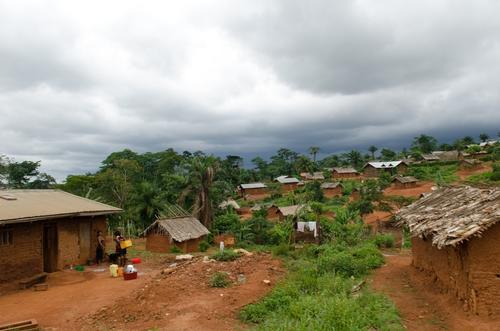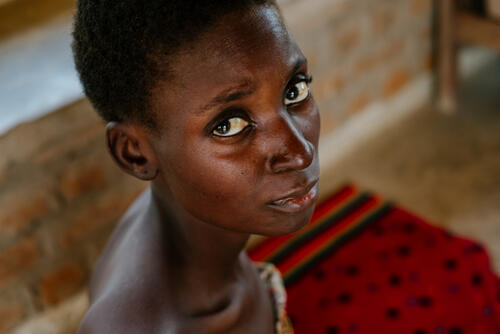It’s midday in Lubero, eastern Democratic Republic of Congo (DRC) and Médecins Sans Frontières (MSF) community health worker Diallo is hurrying down the small slope leading to the home of a family he’s just met.
“My aunt has had a nosebleed for 3 days, but I’m scared to send her to the hospital,” the father of the family tells him. “I don’t want her to be taken by force to the Ebola treatment centre.”
Fear and rumours are the daily lot of community workers like Diallo, who are reaching out to communities to inform them of the availability of free treatment for all health conditions in health centres and hospitals supported by MSF.
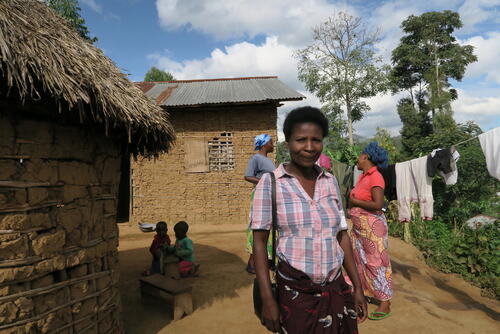
“Fewer patients have been coming to our hospital since Ebola,” Helene, another MSF community health worker, says. “It’s mostly the newly installed triage buildings they’re frightened of because they have no idea about how they work. Some people think they’ll catch Ebola there, but that really isn’t true.”
Every day, Helene and some 20 other community health workers go out into the community to speak to people and to restore their trust. The health workers explain that despite the ongoing epidemic which is causing difficulties for the health system, everyone is able to receive health care for all of their health problems, not just Ebola. “Don’t leave your friends and relatives to die at home when free treatment is available in local health centres!” is the message they keep repeating.
“The hygiene measures that can seem quite scary are intended primarily to protect people from infectious diseases,” says Dr Kanouté, a doctor at MSF’s Lubero project. “Within a few days, we can test someone for the most common diseases, for example, cholera, measles and malaria. People who may be infected with Ebola are referred to a specialist centre in Butembo.”
Enhancing hygiene in health centres
Changes that have been made at Lubero Hospital recently are obvious. The measures implemented to prevent and control infections have led to the recruitment of numerous hygienists and the setting up of a ‘red’ zone for patients with infectious diseases.

Hospital personnel working in the ‘red’ zone wear personal protective equipment and gloves, and are especially scrupulous about washing their hands. Waste management is also essential.
People with symptoms similar to those of Ebola are admitted to the red zone while waiting to be properly assessed for the virus and arrangements are made to transport them to a suitable facility if needed. Fourteen people have so far been suspected of being infected with Ebola in Lubero health district since the start of the epidemic, three of whom died without receiving proper treatment.
Thankfully, the area has not yet seen a positively diagnosed case. In addition to Lubero General Referral hospital, our teams also assist health centres in the area with implementing prevention and infection control measures, while progressively equipping them with chlorinated water hand-washing points and thermometers for checking people’s temperatures.
Without these changes, the training of health workers – most of whom have never encountered Ebola –¬ and the engagement of communities, whatever the strategy adopted to contain the epidemic, will be doomed to fail.
The total number of people infected with Ebola since the beginning of the epidemic stands at more than 2,000 cases of whom more than 1,200 have died. Almost half of the deaths have occurred outside of Ebola treatment centres, either at a person’s home or in a standard health facility.



